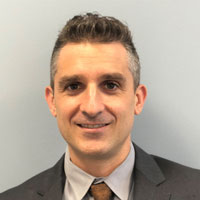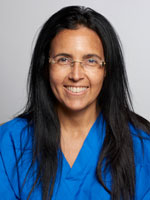Highlights of the SEA Fall Meeting on “Building A Professional Identity”
The Society for Education in Anesthesia (SEA) Fall Meeting was a great success. With very few open seats at the start, this was the first in-person fall conference since the COVID-19 pandemic and was also paired with the SAAAPM meeting. The theme was “Professional Identity Formation”, a topic that encompasses many of the most urgent issues in anesthesia education today. Conceptually we chose to approach professional identity formation in a two-fold manner. On one hand, your professional identity is, of course, shaped by your personal background and experience, while on the other, our collective identity as a profession is molded by the environment to which we are exposed which is in turn influenced by political, social, and economic (not to mention technological) factors impacting medicine in general and anesthesiology in particular.
The meeting opened with an incredible McLeskey lecture featuring Dr. Jo Shapiro, Associate Professor of Otolaryngology-Head and Neck Surgery at Harvard Medical School, Principal Faculty for the Center for Medical Simulation in Boston, and a consultant for the Massachusetts General Hospital Department of Anesthesia, Pain, and Critical Care. Her talk, “Fostering Psychological Safety: A Key Driver of Patient Safety and Physician Wellbeing,” inspired our attendees through her personal and profound take on fostering an environment in which we can maintain and elevate our profession for the betterment of both patients and practitioners.
Our first panel, reflecting the first aspect of our meeting theme, included four physicians representing different backgrounds and experiences that led them to where they are now. Dr. Stephanie Bradley, M.D., a cardiothoracic anesthesiologist from the University of Texas, Houston, explained how as a junior faculty, she is still shaping her professional identity and the difficulty she encounters doing so. Dr. Omonele Nwokolo, M.D., currently the Operating Room Medical Director at UT Houston and also the Chair of Diversity & Inclusion Committee, and Department Title IX Liaison, talked about her journey as a young girl in Nigeria becoming a successful anesthesiologist in the United States. Dr. Tracey Straker, M.D., one of the few African American Woman Professors of Anesthesiology in US, discussed “leadership against the odds”, emphasizing the existing disparities in our specialty. Finally, Dr. Anoushka Afonso, M.D., anesthesiologist at Memorial Sloane Kettering Cancer Center in NYC, Faculty Director of MSKCC Pipeline Programs, Office of Health Equity (OHE), discussed the different aspects of her identity, and how she cultivates them in her construction of her professional identity.
After a busy morning workshop, we had our Duke Award Presentation done by Dr. Ira Todd Cohen: "Lifelong Learning: An Unreliable Narrative”.
The afternoon panel delved into the second aspect of our meeting theme: the external factors that shape our professional identity. Dr. Warren S. Sandberg, M.D., Ph.D., Chair of the Department of Anesthesiology at Vanderbilt University, gave us all a good deal to think (and worry) about by describing the economic and market factors squeezing anesthesia practices, both in and out of the academic environment. Dr. Matthew McEvoy, M.D., Vice Chair for Perioperative Medicine at Vanderbilt University, advocated the role of the anesthesiologist as a perioperative physician as an answer to the squeeze previously discussed by his chair, Dr. Sandberg. Finally, Dr. Michael Lewis, M.D., Chair of the Department of Anesthesiology, Pain Management, & Perioperative Medicine at Henry Ford Health, brought our panel to a close by synthesizing both aspects of our meeting theme, describing his journey from the U.K. and relating the ways in which his experiences have helped him confront the challenges of running a department among the external forces brining to bear many a challenge.
We offered ten high-quality workshops centered around the theme of our meeting including two designed to attract SAAAPM membership: “Resident Remediation: How Can We Help Residents with Difficulties?” and “Working Together to Enhance Residency Training: The Program Director and Coordinator Team.”
In all, our Fall Meeting was extremely well-received and we look forward to more partnership with SAAAPM.
Bryan Mahoney, MD

Barbara Orlando, MD, PhD


